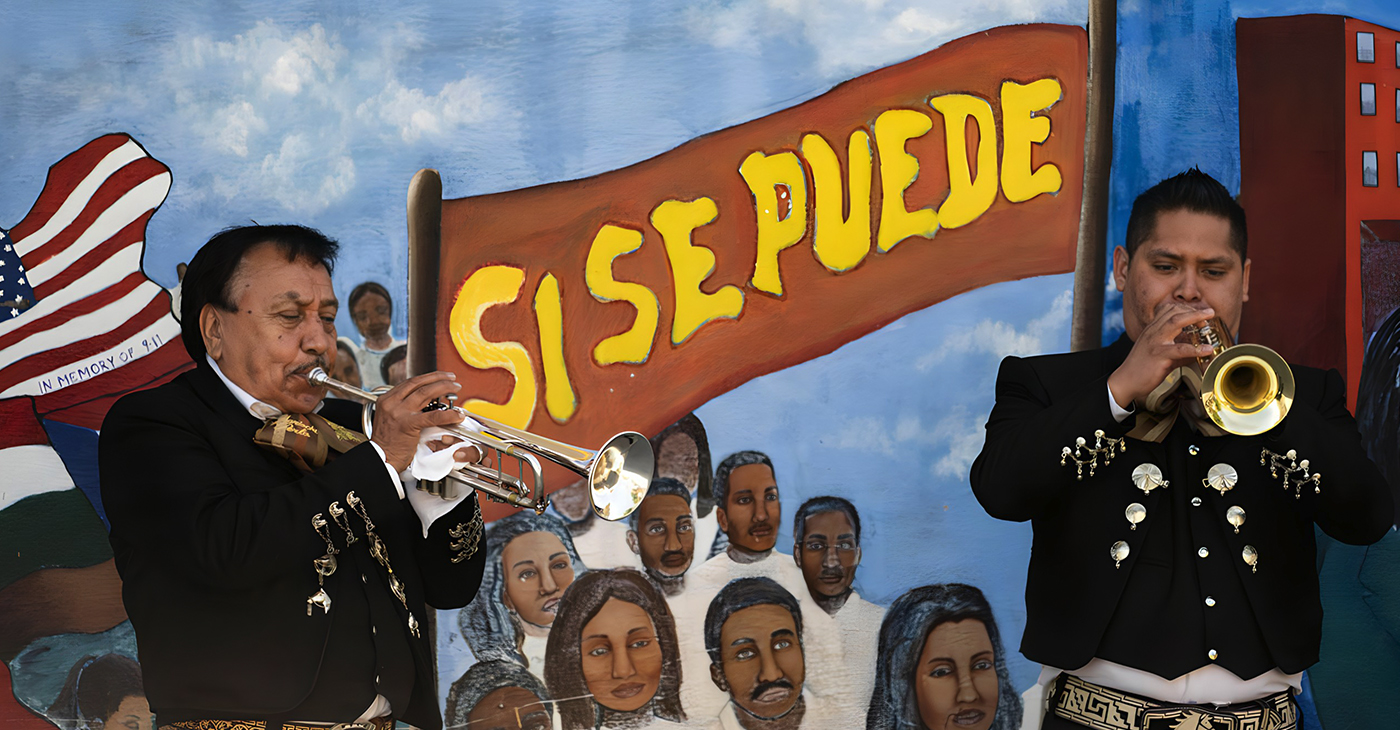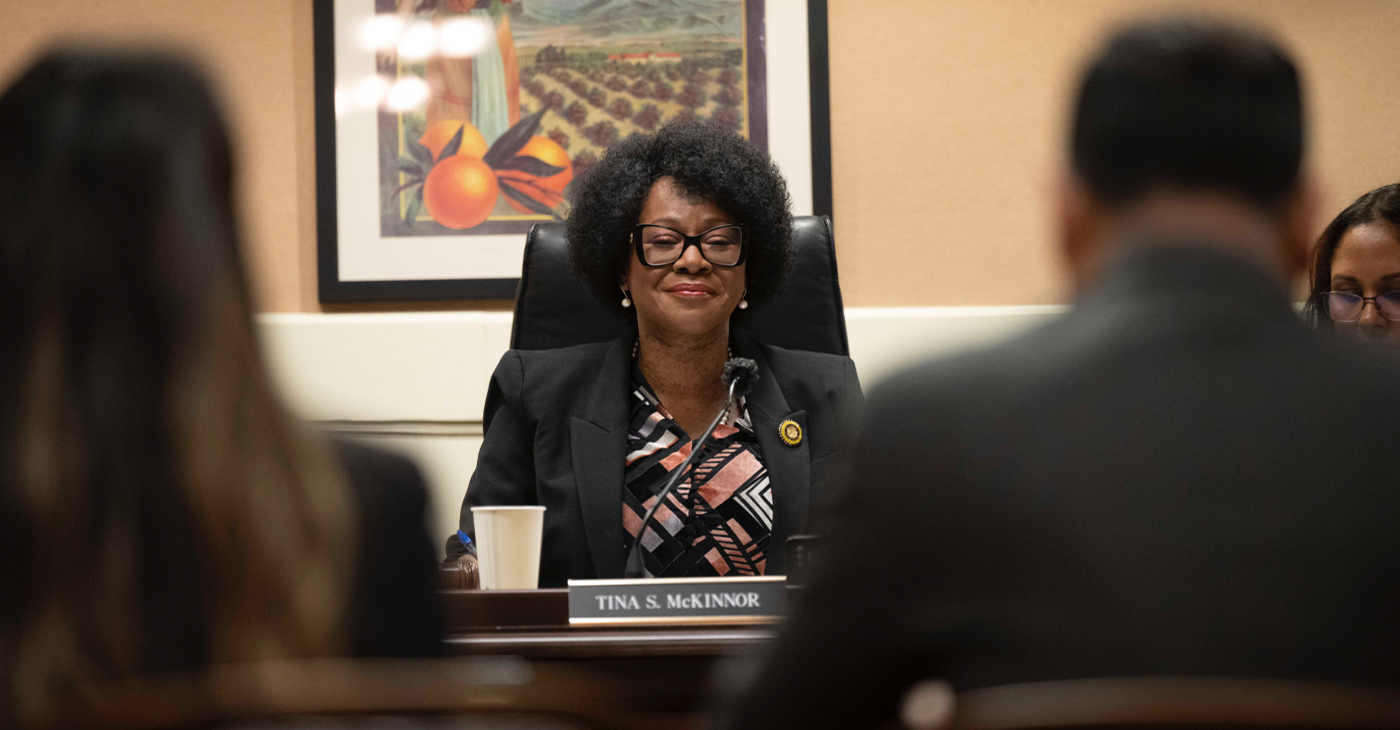California Black Media
Commentary: Cinco de Mayo – A Celebration of Latinx Revindication in the U.S.
The fifth of May, Cinco de Mayo, is a holiday that celebrates the Battle of Puebla, which took place in 1862 near the Mexican city of Puebla. On this day, the Mexican army, led by General Ignacio Zaragoza, defeated the French in their attempt to take over the country. While this date is not widely celebrated in Mexico, except for perhaps in Puebla itself, it has become a popular holiday in the United States.

Anna Lee Mraz | Special to California Black Media Partners
The fifth of May, Cinco de Mayo, is a holiday that celebrates the Battle of Puebla, which took place in 1862 near the Mexican city of Puebla. On this day, the Mexican army, led by General Ignacio Zaragoza, defeated the French in their attempt to take over the country.
While this date is not widely celebrated in Mexico, except for perhaps in Puebla itself, it has become a popular holiday in the United States.
It’s a common misconception that Cinco de Mayo celebrates Mexico’s independence. In fact, Mexico’s Independence Day is celebrated on Sept. 16.
In 1867, five years after the Mexican army’s victory over the French forces at Puebla, the triumph was first celebrated in the United States, in Texas where General Zaragoza was born. Later in 1930, the Mexican consulate in Los Angeles held an official celebration that helped establish the identity of the Mexican and Latin American community in the United States.
During the 1960s and 1970s, the celebration of Cinco de Mayo gained popularity in the United States due to the efforts of the Chicano movement. This movement fought for the civil and human rights of Mexican Americans and played an important role in structuring the Civil Rights Act of 1964.
Celebrating Cinco de Mayo became a way for the Mexican American community to assert their identity and say “We, Mexicans, are here. This is us. We speak Spanish and this is how we celebrate.”
In 1980, as the Chicano movement was gaining momentum, U.S. beer companies began to market Cinco de Mayo through advertising campaigns that encouraged the community to celebrate their identity by consuming their products.
Subsequently, other companies followed suit giving a twist to the meaning of the celebration and redefining it as a celebration of Mexican culture in the United States. As a result, while Cinco de Mayo is now widely celebrated, many people who participate in the festivities are unaware of its origins.
Cinco de Mayo has evolved to become not only a celebration of Mexican culture but also a symbol of the struggle and unity of all oppressed migrant and Latino communities.
This date is typically celebrated with large festivities that feature Mexican music, traditions, art, food, and beverages.
Rubén Ábrica, mayor of East Palo Alto, pointed out in an interview with Peninsula 360 Press that during the celebrations of Cinco de Mayo “people of Mexican descent celebrate their contributions to the American society and join Latino communities affirming their culture, history, and aspirations for justice and equity for the Latinx community and for the people of the United States and around the world.”
Ábrica acknowledged that the celebration of Cinco de Mayo in East Palo Alto retains its historical significance by inspiring the community to stand up for their rights and fight “against racist oppression and inequality. These issues have caused suffering for many people, particularly those who are people of color and other vulnerable groups.
The Cinco de Mayo holiday provides an opportunity to explore themes of freedom, culture, and identity. By challenging stereotypes and rejecting one-dimensional representations of Mexican culture: tropes like Sombreros, Burros, and Huaraches.
Undoubtedly, the celebration of Cinco de Mayo has deeper roots than being a celebration where Mexican music is played, it must be more than an excuse to drink Tequila or Mezcal (but who needs one, right?), or a marketing strategy for beer companies, and where typical food is consumed.
There is more than one good reason to celebrate Cinco de Mayo this year. Acknowledging the value and importance of Mexican Heritage and learning about the rich history of Mexican people in the United States is a worthy endeavor.
Karina Alvarado from Peninsula 360 Press provided information for this article.
This California Black Media report was supported in whole or in part by funding provided by the State of California, administered by the California State Library.
Business
Black Business Summit Focuses on Equity, Access and Data
The California African American Chamber of Commerce hosted its second annual “State of the California African American Economy Summit,” with the aim of bolstering Black economic influence through education and fellowship. Held Jan. 24 to Jan. 25 at the Westin Los Angeles Airport Hotel, the convention brought together some of the most influential Black business leaders, policy makers and economic thinkers in the state. The discussions focused on a wide range of economic topics pertinent to California’s African American business community, including policy, government contracts, and equity, and more.

By Solomon O. Smith, California Black Media
The California African American Chamber of Commerce hosted its second annual “State of the California African American Economy Summit,” with the aim of bolstering Black economic influence through education and fellowship.
Held Jan. 24 to Jan. 25 at the Westin Los Angeles Airport Hotel, the convention brought together some of the most influential Black business leaders, policy makers and economic thinkers in the state. The discussions focused on a wide range of economic topics pertinent to California’s African American business community, including policy, government contracts, and equity, and more.
Toks Omishakin, Secretary of the California State Transportation Agency (CALSTA) was a guest at the event. He told attendees about his department’s efforts to increase access for Black business owners.
“One thing I’m taking away from this for sure is we’re going to have to do a better job of connecting through your chambers of all these opportunities of billions of dollars that are coming down the pike. I’m honestly disappointed that people don’t know, so we’ll do better,” said Omishakin.
Lueathel Seawood, the president of the African American Chamber of Commerce of San Joaquin County, expressed frustration with obtaining federal contracts for small businesses, and completing the process. She observed that once a small business was certified as DBE, a Disadvantaged Business Enterprises, there was little help getting to the next step.
Omishakin admitted there is more work to be done to help them complete the process and include them in upcoming projects. However, the high-speed rail system expansion by the California High-Speed Rail Authority has set a goal of 30% participation from small businesses — only 10 percent is set aside for DBE.
The importance of Diversity, Equity and Inclusion (DEI) in economics was reinforced during the “State of the California Economy” talk led by author and economist Julianne Malveaux, and Anthony Asadullah Samad, Executive Director of the Mervyn Dymally African American Political and Economic Institute (MDAAPEI) at California State University, Dominguez Hills.
Assaults on DEI disproportionately affect women of color and Black women, according to Malveaux. When asked what role the loss of DEI might serve in economics, she suggested a more sinister purpose.
“The genesis of all this is anti-blackness. So, your question about how this fits into the economy is economic exclusion, that essentially has been promoted as public policy,” said Malveaux.
The most anticipated speaker at the event was Janice Bryant Howroyd known affectionately to her peers as “JBH.” She is one of the first Black women to run and own a multi-billion-dollar company. Her company ActOne Group, is one of the largest, and most recognized, hiring, staffing and human resources firms in the world. She is the author of “Acting Up” and has a profile on Forbes.
Chairman of the board of directors of the California African American Chamber of Commerce, Timothy Alan Simon, a lawyer and the first Black Appointments Secretary in the Office of the Governor of California, moderated. They discussed the state of Black entrepreneurship in the country and Howroyd gave advice to other business owners.
“We look to inspire and educate,” said Howroyd. “Inspiration is great but when I’ve got people’s attention, I want to teach them something.”
California Black Media
Asm. Tina McKinnor Elected Chair of L.A. Delegation to Legislature
On Jan. 24, the members of the Los Angeles County Delegation (LACD) to the California Legislature elected Assemblymember Tina McKinnor (D-Inglewood) as the group’s chair. McKinnor, who is a member of the California Legislative Black Caucus, will lead the 39-member body, which is comprised of 15 State Senators and 24 State Assemblymembers representing various areas of Los Angeles County.

By California Black Media
On Jan. 24, the members of the Los Angeles County Delegation (LACD) to the California Legislature elected Assemblymember Tina McKinnor (D-Inglewood) as the group’s chair.
McKinnor, who is a member of the California Legislative Black Caucus, will lead the 39-member body, which is comprised of 15 State Senators and 24 State Assemblymembers representing various areas of Los Angeles County.
As LACD chair, McKinnor succeeds Assemblymember Luz Rivas (D-San Fernando Valley).
“I am grateful for the trust legislators from the Los Angeles County Delegation have placed in me to serve as its next Chair,” said McKinnor in a statement.
LACD Vice Chair, Sen. Maria Elena Durazo (D-Los Angeles), said the body, which collectively represents about 10 million people in California’s populous county, is the largest, bi-partisan, and most diverse delegation in the California Legislature.
“Heading into a challenging budget year, the Delegation, and I will be intensely focused on making sure communities throughout Los Angeles County receive the services they need and that we continue our historic investments to address homelessness and the housing affordability crisis in Los Angeles County,” Durazo added.
McKinnor thanked Rivas for her stewardship of the LACD during the last legislative session.
“The Delegation and I are grateful to outgoing Chair, Assemblymember Luz Rivas, for her incredible leadership to the Legislature, the state, and especially the people of Los Angeles County,” said McKinnor.
California Black Media
Anti-Theft Bill with Jail-Time Requirement Gets Wide Ranging Support
Fed up with the alarming frequency of retail theft across California, including smash and grabs, a diverse group of business leaders, law enforcement officials, policymakers and public safety advocates joined their efforts in Sacramento on Jan. 24. Their purpose: to increase public support for Assembly Bill (AB) 1772, a bill that would make jail time mandatory for repeat theft offenders.

By California Black Media
Fed up with the alarming frequency of retail theft across California, including smash and grabs, a diverse group of business leaders, law enforcement officials, policymakers and public safety advocates joined their efforts in Sacramento on Jan. 24.
Their purpose: to increase public support for Assembly Bill (AB) 1772, a bill that would make jail time mandatory for repeat theft offenders.
Co-authored by Assemblymembers James C. Ramos (D-San Bernardino), Avelino Valencia (D-Anaheim) and Devon Mathis (R-Tulare), AB 1772 would require jail time “of one to three years for theft crimes depending upon the circumstances.
“Offenses would include grand theft, theft from an elder or dependent adult, theft or unauthorized use of a vehicle, burglary, carjacking, robbery, receiving stolen property, shoplifting or mail theft,” the bill language reads.
Ramos said the need to act is urgent.
“It’s time for us to reverse the spikes in theft crimes since the pandemic. Our law enforcement members and district attorneys need additional tools such as AB 1772. We must reverse the trend before the problem grows worse. Last year I requested a state audit of the impact of Prop 47 on Riverside and San Bernardino counties,” said Ramos.
Prop 47 is the California initiative, approved by voters in 2014, that reclassified some felonies to misdemeanors and raised the minimum amount for most misdemeanor thefts from $400 to $950.
According to a Public Policy Institute of California (PPIC) report, the rate of occurrence of petty crimes like shoplifting and commercial burglaries have increased by double digits over the last four years.
In Orange County alone, commercial burglaries have spiked by 54%.
“Our communities are experiencing an increase in retail crime and deserve appropriate action from their legislators,” Valencia said.
San Bernardino County Sheriff Shannon Dicus thanked Ramos.
“This bill, designed to impose stricter penalties on serial retail theft suspects, responds urgently to the escalating consequences of shoplifting and related crimes on our communities,” he said.
AB 1772 supporters who spoke at the gathering included Sacramento Sheriff Jim Cooper and San Bernardino Chief of Police Darren Goodman. Listed as supporters are the California State Sheriff’s Association, City of Riverside Police Chief Larry Gonzalez and Redlands Chamber of Commerce.
-

 Activism4 weeks ago
Activism4 weeks agoOakland Post: Week of March 27 – April 2, 2024
-

 #NNPA BlackPress4 weeks ago
#NNPA BlackPress4 weeks agoCOMMENTARY: D.C. Crime Bill Fails to Address Root Causes of Violence and Incarceration
-

 #NNPA BlackPress4 weeks ago
#NNPA BlackPress4 weeks agoMayor, City Council President React to May 31 Closing of Birmingham-Southern College
-

 #NNPA BlackPress4 weeks ago
#NNPA BlackPress4 weeks agoBeloved Actor and Activist Louis Cameron Gossett Jr. Dies at 87
-

 Community1 week ago
Community1 week agoFinancial Assistance Bill for Descendants of Enslaved Persons to Help Them Purchase, Own, or Maintain a Home
-

 Activism3 weeks ago
Activism3 weeks agoOakland Post: Week of April 3 – 6, 2024
-

 Business1 week ago
Business1 week agoV.P. Kamala Harris: Americans With Criminal Records Will Soon Be Eligible for SBA Loans
-

 Activism2 weeks ago
Activism2 weeks agoOakland Post: Week of April 10 – 16, 2024



















































